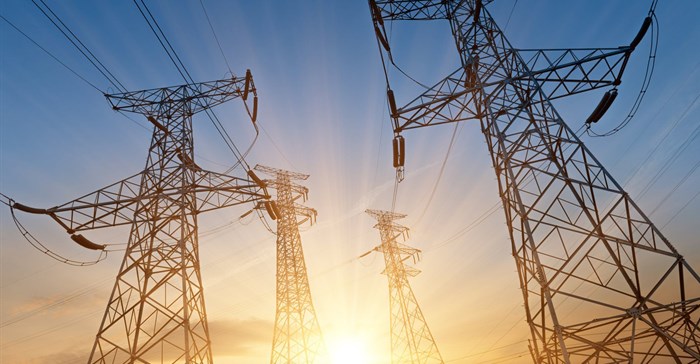
Top stories






More news


















Logistics & Transport
Uganda plans new rail link to Tanzania for mineral export boost










Earnings before interest, taxation, depreciation and amortisation (EBITDA) increased to R28.1bn from R26.4bn last year. The state-owned enterprise recorded a net profit, after-tax, of R83m, while navigating a very challenging operating environment. Revenue grew to R108.7bn compared to R107.5bn in the same period last year, marking an increase of 1.1%.
Eskom chief financial officer, Calib Cassim cautioned that Eskom’s financial performance, which is expected to decline in the second half of the financial year due to seasonality factors, increased maintenance and expenditure, the security of supply, coupled with reduced demand and lower summer tariffs.
“While green shoots have begun to emerge in the economy with the phased easing of lockdown restrictions, the recession and continued uncertainty around Covid-19 is still expected to threaten future sales volumes, the cost of production and customers’ ability to pay,” he said
Cassim said dealing with liquidity remains a top priority, as it drives its turnaround strategy.
Also, sales volumes dropped 10.3% in the period due to the Covid-19 national lockdown to curb the spread of infections.
Eskom also contained its employee benefit costs and operating expenses, with employee benefit costs marginally increasing to R16.7bn, compared to R16.4bn in September 2019. In its attempts to rein in costs, the power utility relied mainly on natural attrition and voluntary separation packages for managerial staff to reduce headcount, and there were no salary increases or incentive bonuses for managerial level staff.
The utility said the primary energy costs rose to R54.3bn in the period, versus R52bn in the same period last year, a 4.4% increase. Meanwhile, Eskom has redoubled its efforts to curb coal costs, which remained relatively manageable, with an increase of only 4.6% in the average purchase cost per ton of coal, compared to 14.2% in September 2019.
Group chief executive, André de Ruyter, reiterated that Eskom’s top priority remains addressing operational and financial challenges and return to financial sustainability.
“Given the challenging environment in which we operate, this will require extraordinary efforts from every Eskom employee, and continued support from government and all South Africans.
"The implementation of our reliability maintenance programme continues to bear fruit and positively affecting plant performance,” he said.
He explained that the divisionalisation of Eskom has been finalised, with the implementation of the new operating models of the functionally separate entities progressing well for completion in the first half of 2021.
Municipal arrear debt remained an area of great concern, with R32.9bn incurred by 30 September 2020, from R25.1bn in September 2019.
According to Eskom, the top 20 defaulting municipalities constitute 80% of the total invoiced municipal arrear debt, with 48 municipalities carrying arrear debt of more than R100 million each by 30 September this year.
“Notably, as at 30 September, Eskom had secured funding of R19.6bn or 48% of the funding requirements of R40.7bn for financial 2021, said Cassim.
Also, the shareholder provided a further R6bn in support, with the remainder from the R56 billion committed by government expected by year-end.
“Despite having achieved 48% of our funding requirements during the period under review, our access to funding in both domestic and foreign markets remains constrained due to low investor confidence as a result of poor financial performance, saturated borrowing capacity and the recent rating downgrades," he said.
Meanwhile, he said these factors have a direct effect on market appetite and Eskom’s future cost of borrowing, and may hinder the execution of the borrowing programme.
SAnews.gov.za is a South African government news service, published by the Government Communication and Information System (GCIS). SAnews.gov.za (formerly BuaNews) was established to provide quick and easy access to articles and feature stories aimed at keeping the public informed about the implementation of government mandates.
Go to: http://www.sanews.gov.za